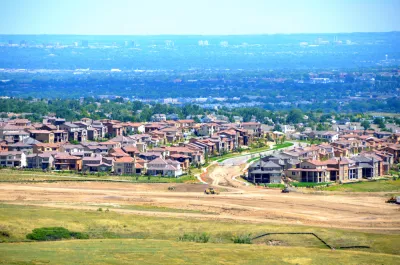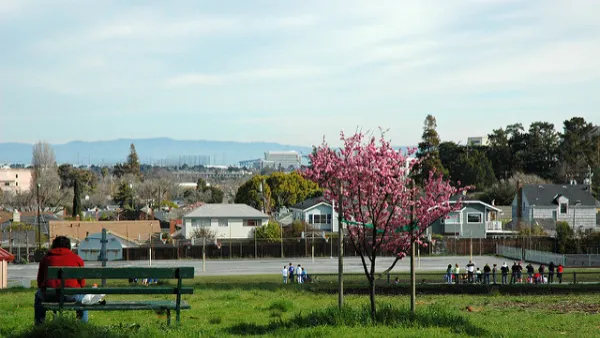In a scathing response to arguments in favor of a "slow growth" ordinance in Lakewood, Colorado, Mike Eliason rebukes the idea that capping growth is a green policy.

The city of Lakewood, Colorado recently made waves by approving strict caps on residential development, a policy some environmental activists supported. "To anyone who has been paying attention to the housing crisis across the country, the outcomes of such an act will be quite obvious," Mike Eliason writes. "Home values will continue to escalate, affordability will not improve, rents will go up, commutes will get longer, homelessness will increase."
In addition to the policy's potential social and economic pitfalls, Eliason says it's preposterous to view "slow growth" measures as environmentally friendly. He writes, "the cap does not apply to business and commercial properties. What this means is that the city can continue to add jobs at a staggering clip, but the housing that should be added to balance those jobs in the city, will be forced to be located outside the city."
Eliason ridicules the idea that "forcing 4,000 more people to drive into the city for work, life, sports, school" can constitute a plan for climate action. "In fact, it is the exact opposite of a climate action plan, and here is why. Lakewood's own 2015 carbon emissions inventory shows that as it has gotten denser, its carbon footprint has actually gotten smaller."
Calling Lakewood's anti-development policies "a form of climate arson," Eliason also points out that they can be racially and economically discriminatory, foisting the burdens of auto-centric sprawl on youth, the poor, and people of color while preserving the benefits for well-off mostly-white homeowners.
FULL STORY: A growth cap is Climate Arson

National Parks Layoffs Will Cause Communities to Lose Billions
Thousands of essential park workers were laid off this week, just before the busy spring break season.

Retro-silient?: America’s First “Eco-burb,” The Woodlands Turns 50
A master-planned community north of Houston offers lessons on green infrastructure and resilient design, but falls short of its founder’s lofty affordability and walkability goals.

Delivering for America Plan Will Downgrade Mail Service in at Least 49.5 Percent of Zip Codes
Republican and Democrat lawmakers criticize the plan for its disproportionate negative impact on rural communities.

Test News Post 1
This is a summary

Test News Headline 46
Test for the image on the front page.

Balancing Bombs and Butterflies: How the National Guard Protects a Rare Species
The National Guard at Fort Indiantown Gap uses GIS technology and land management strategies to balance military training with conservation efforts, ensuring the survival of the rare eastern regal fritillary butterfly.
Urban Design for Planners 1: Software Tools
This six-course series explores essential urban design concepts using open source software and equips planners with the tools they need to participate fully in the urban design process.
Planning for Universal Design
Learn the tools for implementing Universal Design in planning regulations.
EMC Planning Group, Inc.
Planetizen
Planetizen
Mpact (formerly Rail~Volution)
Great Falls Development Authority, Inc.
HUDs Office of Policy Development and Research
NYU Wagner Graduate School of Public Service




























